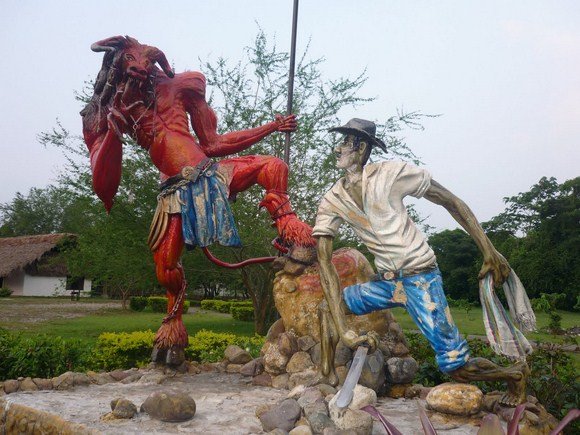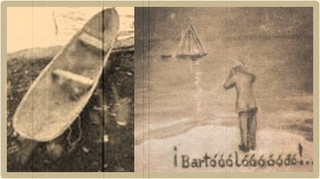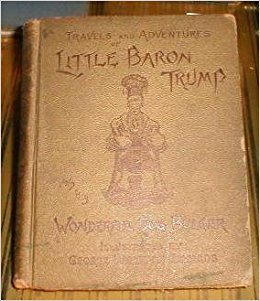
'' Florentino and the devil '':
The legend of Florentino and the devil is considered one of the sublime lyrical monuments of the Venezuelan people. Florentino and the Devil is a story that narrates the eternal struggle between good and evil, between life and death, with an intense message that expresses, using icons of the Venezuelan plain, the resilience of the humble man and woman of this country and the llanera culture over the ravages and abuses of powerful interests. The plot that gives life to the characters of Alberto Arvelo Torrealba takes place in Santa Inés, in the state of Barinas, in this area, Florentino was challenged by satan to a duel of verses, and managed to defeat him in the contrapunteo by naming them in the last verse. Three Divine Persons, and with it sending him back to his hell.
Story
Florentino was the best rider and coplero of the plains. One night, riding alone across the plain to attend a joropo in a nearby town, he noticed that from afar was followed by another man dressed all in black who seemed to go to the same party.
When the joropo began and Florentino prepared to sing, the strange guest challenged him to counterpoint with him. Florentino accepted and as the verses crossed, he realized that his adversary was the Devil and that if he lost in the contrapunteo, he would lose his soul. But his ability as an improviser and his faith kept the Devil busy singing all night long without Florentino surrendering or misjudging a rhyme. When the sun came up, the Devil had to disappear completely defeated. Alberto Arvelo Torrealba wrote a monumental poem narrating the counterpoint between Florentino and the Devil.
The confrontation between Florentino, the most famous of the Llaneros singers, and the Devil, takes place in several scenes. The first one corresponds to the Challenge; in it, in some desolate place of summer llanero, El Diablo crosses with Florentino, both knights, and challenges him to a counterpoint in place and opportunity there indicated.
The second one represents Florentino in the agreed place, singing and waiting for the challenger, who is not slow to introduce himself. In this way, the contrapunteo is immediately started with bandola or harp, cuatro and maracas, at the end of which, El Diablo is defeated. Some say that by sunrise; others, by the spell of the saints, but the fact is that it disappears. The legend that crosses the plains suggests that, after the meeting, Florentino never sang again.
For some researchers and historians, it is not by chance that Alberto Arvelo Torrealba has decided to give life to these characters in Santa Inés, a key stage in the history of Venezuela since it is the same place where General Ezequiel Zamora won the battle against the centralist army that defended the Venezuelan oligarchy. Santa Inés, place where «El Catire», Florentino, challenged Satan and came out victorious.
The legend of Florentino and the Devil was also revived by Rómulo Gallegos in his novel Cantaclaro. Florentino, el catire quitapesares, was the best of the copleros. Infallible in all the days and parties of the Llano, no one could defeat him in his contrapunteos. Devil himself, envious of Florentino's triumphs, decided to challenge him to a duel of coplas, wrote Gallegos.

'' Bartolo, bring me the cayuco ''
El Bajito is a beach located at the mouth of the Cañada Nueva, between Calle del Oriente and Colonia Gutiérrez, sector El Milagro in Maracaibo Venezuela, and is famous, among other circumstances for an ancient legend that had great diffusion among the people of the environment, and in particular between sailors and fishermen.
The legend:
The legend dates back to the 19th century and mentions that the owner of a certain pirogue, anchored in that port, went down one night to land, and when he said goodbye to the boy who brought him, he told him to be alert so that when he came back from his excursion he called and did not make him wait with the canoe. Later, the sailor who left alone, and at a measured pace, returned at full speed and with two men, like two furious dogs, on his heels and almost poking him with combs. Bartolo! Bartolo! The canoe! the boss began to scream desperately, but in spite of the anguished call more and more frequent, the boy did not listen to him, because he slept like a stone. Convinced of the uselessness of his cries, cornered between iron and water, the sailor rushed inland, like a waterspout, disappearing into the waters.
His corpse never appeared, but his demand for help, his resounding movement, still resounds in the dark nights by that part of the coast, filling hearts with fear and wailing pitifully to the neighborhood dogs Bartoloooo! Bartoloooo! Bring me the canoe.

Guaraira Repano
The city of Caracas is located in a beautiful valley at the foot of the mountain of El Ávila. In pre-Columbian times it received the name of Guaraira Repano, which means something like: "the wave that came from afar". The indigenous people of the area said that in ancient times there was no mountain and that from the valley you could see the sea. But one day the tribes offended the great goddess of the sea and she wanted to kill all the people. Then he raised a great wave, the highest one that had been seen; all the people knelt down and implored forgiveness from the goddess and, just when the wave was about to fall on them, the goddess felt compassion and turned the wave into the great mountain that exists today.
Post en español: https://steemit.com/spanish/@flawlessal/3-leyendas-venezolanas-parte-2
Congratulations @sassywriter1! You have completed some achievement on Steemit and have been rewarded with new badge(s) :
Click on any badge to view your own Board of Honor on SteemitBoard.
To support your work, I also upvoted your post!
For more information about SteemitBoard, click here
If you no longer want to receive notifications, reply to this comment with the word
STOP